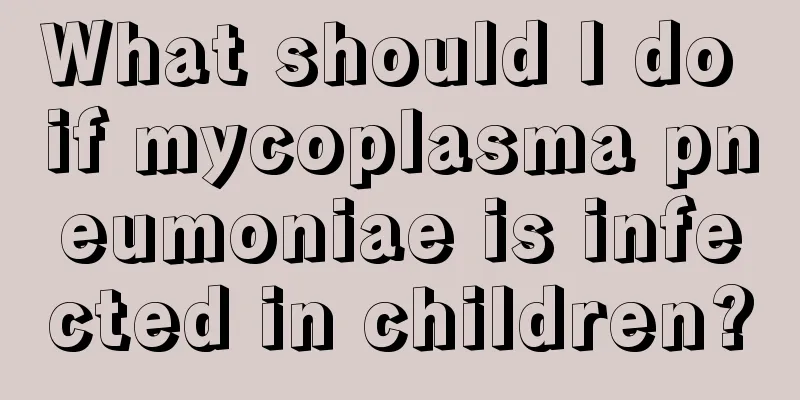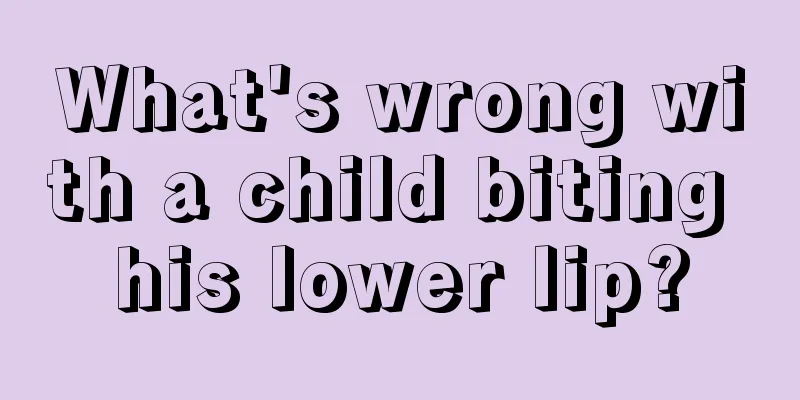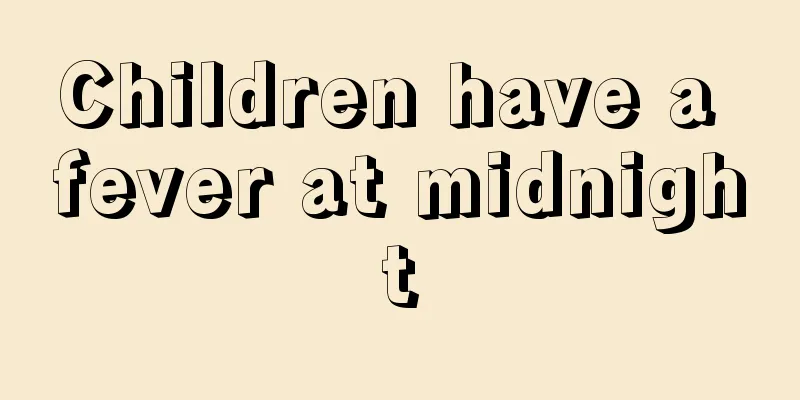What should I do if mycoplasma pneumoniae is infected in children?

|
Mycoplasma is a pathogenic microorganism that is a common pathogen that causes pneumonia in children. Mycoplasma is transmitted through respiratory droplets. In addition to causing pneumonia, it can also lead to bronchitis, tracheitis, etc. Mycoplasma infection can be seen year-round, but occurs more frequently in spring and winter. Children’s own immunity is not very strong. If they are infected with mycoplasma, what should we do? Will it affect the healthy growth of children? Mom and Dad, please don’t worry, I will give you the answer below. ⑴ Respiratory tract isolation is necessary because mycoplasma infection can cause small epidemics, and the time for children to excrete mycoplasma after becoming ill is long, which can be up to 1 to 2 months. In infancy, the disease only presents with symptoms of upper respiratory tract infection, and pneumonia develops after repeated infection. At the same time, during the period of MP infection, it is easy to be infected with other viruses again, which will cause the disease to worsen and become difficult to heal. Therefore, respiratory isolation should be achieved as much as possible for sick children or children with a history of close contact to prevent reinfection and cross-infection. (2) Oxygen therapy should be given promptly to patients with severe symptoms of hypoxia or airway obstruction. Its purpose is to increase the partial pressure of oxygen in arterial blood and improve tissue hypoxia caused by hypoxemia. The method of oxygen administration is the same as that for general pneumonia. Symptomatic treatment: ⑴ Expectorant The purpose is to make the sputum thinner and easier to discharge, otherwise it will easily increase the chance of bacterial infection. However, there are few effective expectorants. In addition to increasing turning over, patting the back, nebulization, and suctioning sputum, you can choose expectorants such as Bisuoping and Tanyijing. Since cough is the most prominent clinical manifestation of Mycoplasma pneumonia, frequent and severe coughing will affect the sleep and rest of children. Sedatives such as chloral hydrate or phenobarbital can be given appropriately, and small doses of codeine can be given to suppress cough as appropriate, but the number of times should not be too many. (2) Antiasthmatic: For patients with severe asthma, bronchodilators can be used, such as oral aminophylline, 4-6 mg/(kg·time), once every 6 hours; salbutamol inhalation can also be used. Children under the age of 5 are more likely to get pneumonia, so mothers of newborns must take good care of their babies. Of course, it cannot be certain that a child will not get the disease after the age of 5. This is also related to the growth environment. Give the flowers of the motherland a warm garden. |
<<: How to treat cough variant asthma in children?
>>: What should I do if my child has gastrointestinal dysfunction?
Recommend
Height and weight of a one and a half year old child
When a child reaches one year old, his body will ...
What to do if your child has tonsillitis and cough? Folk remedies are effective
Tonsillitis in children is the most common type o...
What are the benefits of eating walnuts for children
Many parents buy walnuts for their children, espe...
Molluscum contagiosum in children can heal on its own
Molluscum contagiosum is more likely to occur in ...
What are the symptoms of pediatric dermatitis?
Nowadays, many children have symptoms of dermatit...
What's wrong with the pimples on the child's body?
Every child is the focus of the entire family, be...
What is the reason for the baby's stool to be yellow-green?
Recently, many mothers of newborn babies have con...
How to soothe a newborn to sleep?
Newborns are too young to speak, so they can only...
Baby's eyes have red bloodshot
Newborns often bleed after the umbilical cord fal...
The baby is more than three months old and keeps moaning
Parents love their children very much, especially...
What to do if your newborn's butt is red and rotten
The skin of newborn babies is very delicate. Sinc...
Baby has fever, convulsions and foaming at the mouth. What's going on?
We all know that children's convulsions can b...
What to do if your child has canine teeth
If a child grows canine teeth during the developm...
Why does my child’s lips become red and chapped?
As autumn approaches, many parents have a worry: ...
What to do if your baby has rectal prolapse
After birth, the baby depends on his parents for ...









